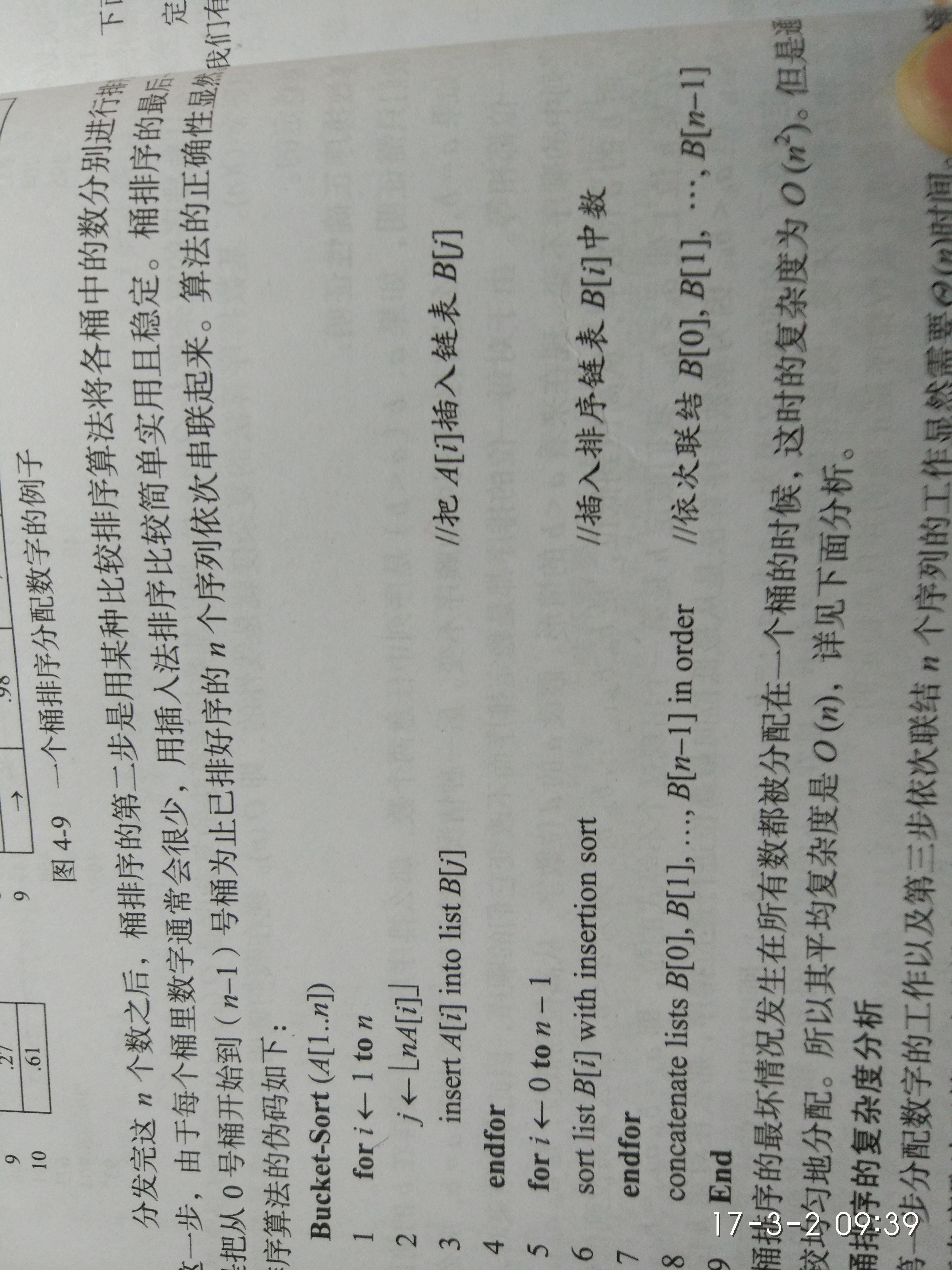1 #include<iostream> 2 using namespace std; 3 4 struct node 5 { 6 node *next; 7 double n; 8 }; 9 10 11 struct list 12 { 13 node *head; 14 int n = 0; 15 }; 16 17 void addlist(list *t, double i) 18 { 19 if (t->n == 0) 20 { 21 t->head = new node; 22 t->head->n = i; 23 t->head->next = NULL; 24 t->n++; 25 } 26 else 27 { 28 node *x = new node; 29 x->n = i; 30 x->next = t->head; 31 t->head = x; 32 t->n++; 33 } 34 } 35 36 37 void insertion(list *b) 38 { 39 int flag = 1; 40 if (b->n < 2) 41 ; 42 else 43 { 44 node *m1; 45 node *m=b->head; 46 node *q = b->head->next; 47 node *p = b->head; 48 while (flag) 49 { 50 if (q->next == NULL) 51 flag = 0; 52 double t = q->n; 53 while (p->n < t) 54 { 55 if (p == b->head) 56 { 57 m1 = b->head; 58 } 59 else m1 = m1->next; 60 p = p->next; 61 62 } 63 m->next = q->next; 64 if (m1 != NULL) 65 m1->next = q; 66 q->next = p; 67 q = m->next; 68 } 69 } 70 } 71 72 void Radix_Sort(double a[], int n) 73 { 74 list b[10]; 75 int j; 76 for (int i = 1; i <= n; i++) 77 { 78 79 j = n*a[i]; 80 addlist(&b[j], a[i]); 81 } 82 for (int i = 0; i < n; i++) 83 { 84 insertion(&b[i]); 85 } 86 for (int i = 0; i < n; i++) 87 { 88 for (int j = 1; j <= b[i].n; j++) 89 { 90 cout << b[i].head->n << endl; 91 b[i].head = b[i].head->next; 92 } 93 } 94 } 95 96 97 98 void main() 99 { 100 double a[11]; 101 for (int i = 1; i <= 10; i++) 102 a[i] = 1.0 - 0.06*i; 103 Radix_Sort(a, 10); 104 105 106 107 108 109 }
桶排序先把要排的小数乘一个整数,按得到整数的整数部分,放入list[整数部分]。
在用成熟的排序算法把list中的小数进行排序,因为数列较少,降低了比较的次数,从而提高效率。
缺点减少了时间,但却消耗了较多的内存。




